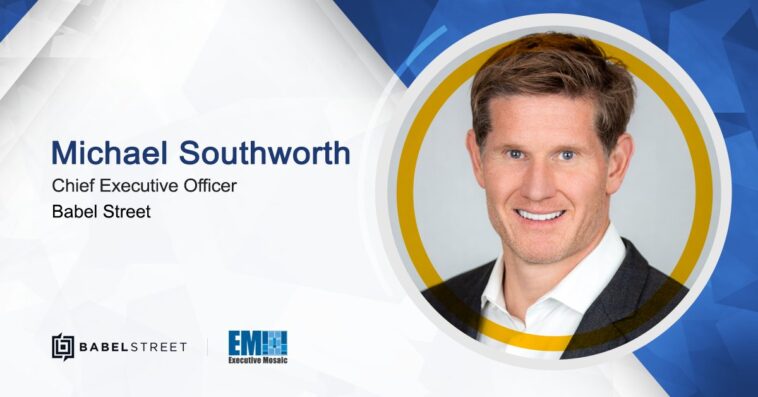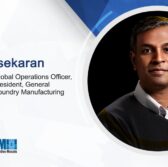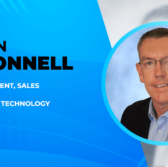In this hyper-digital world, organizations now grapple with sometimes overwhelming volumes of data, which in turn escalates identity and risk vulnerabilities. This creates a critical need to balance these threats with available resources. Artificial intelligence-enabled name-matching technology is proving to be particularly suited to this task and can provide users with efficient solutions to bridge what’s known as the “risk-confidence gap” — the difference between the perceived level of risks and the confidence level in a process’ ability to mitigate them.
Intelligence professionals and analysts require fast, accurate data from multiple sources. Sometimes the only common link between data sources is the name of a person, place, or organization, and names can vary greatly. Spelling, mis-ordered name components and even nicknames are among the variations that can lead to failed or false matches. The consequences of mismatching can be serious. Border patrol could fail to detain someone on a watchlist. Transportation Security Administration screeners might allow individuals flagged for security concerns to board flights. Critical potential threat information might not be successfully shared across agencies.
One company, Babel Street, is working to technologically collaborate on advanced identity intelligence and risk operations. Its Insights platform delivers advanced AI and data analytics solutions to close the risk-confidence gap.
In this Spotlight interview, Babel Street CEO Michael Southworth — a Silicon Valley native who has turned his tech and business expertise to D.C. — reflects on the company’s recent expansions.
ExecutiveBiz: Where are you seeing opportunities for expansion in Babel Street’s portfolio? What new capabilities or markets are you eyeing?
Michael Southworth: Over the past 18 months, we have advanced our core use cases in deep investigation and situational awareness with advanced identity, Know Your Customer and Anti-Money Laundering, and contested supply chain capabilities and believe we can help transform these markets with expanded data and artificial intelligence expertise.
We are in the early innings of automating threat and identity risk processes. There is an opportunity to automate workflows, allowing machines to collect, summarize and prioritize and focusing humans on knowledge work and final decision processing.
ExecutiveBiz: Accenture describes a life-centric growth model as “built on understanding that people are multifaceted, and that they embrace their own complexity. It involves keeping a finger on the pulse of the external forces that impact modern life.” How is Babel Street working to integrate this approach?
Michael Southworth: We drive a performance driven culture — inside and outside of the office, with a focus on continuous improvement. Core to this ethos is employee empowerment and transparency manifested in our processes, training, recruiting and promotion strategy. A vast majority of our team grows with the business, taking on expanded roles and or advancing technical expertise.
We measure success from the benefits derived by our customers and partners and structure the organization to build trust, engagement and understanding of their most difficult problems. Where possible, we celebrate our use case successes during our weekly all-hands meetings so best practices can be shared throughout our customer base.
ExecutiveBiz: How do you set your priorities in an ever-changing market? What are the key factors you look for when making bidding and/or acquisition decisions?
Michael Southworth: We have matured our strategy process, reviewing the market trends and opportunities and projecting “where the puck will be” over the next one to three years. We apply the outside-in approach to our go-to-market, operations and product cycles. We then align our priorities against the long-term strategy and short-term market requirements, reviewing our development progress and priorities weekly. Whether a large or small company, it is a difficult balance, but I believe fast, data-driven decisions combined with some gut instinct produce the best outcomes.
Throughout my career, I have been very active in M&A, completing over 30 deals on the buy and sell side. Two requirements:
- Opportunities where the combination can produce significantly improved customer outcomes through a combination of technologies, improved integration, or customer access. This usually involves benefits to both companies and should be simple enough to explain to a person outside the space in 30 seconds.
- Culture alignment: M&A takes considerable time and effort. The integration is never perfect and there has to be a shared vision of the desired outcome.
ExecutiveBiz: What can you tell me about your company’s recent M&A efforts?
Michael Southworth: Over the past two years, we have not only invested significantly in our organic growth but also acquired two companies to enhance our data collection and core AI capabilities to establish an end-to-end workflow.
We now have the scale and capabilities to attack larger and more complex use cases but will continue to evaluate opportunities that can further enhance our solutions and or expand our market reach.





